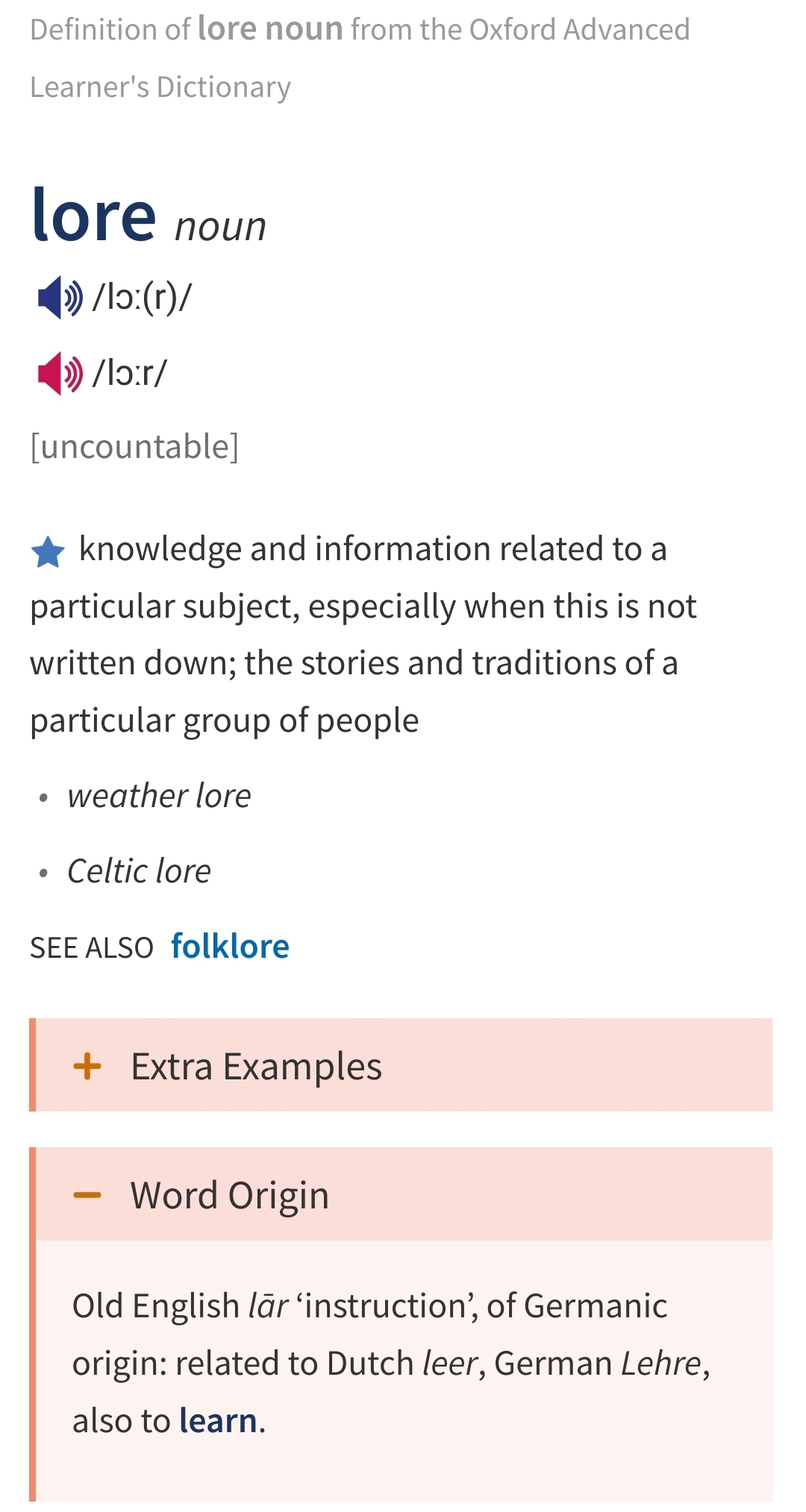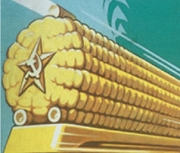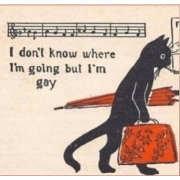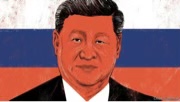|
Some Nazi poo poo from Warno  
|
|
|
|

|
| # ? May 26, 2024 19:27 |
|
Got my copy of The British Way delivered today. They really knocked it out of the park in the quality of all the materials. The board and cards are incredible.
|
|
|
|
Frosted Flake posted:Got my copy of The British Way delivered today. They really knocked it out of the park in the quality of all the materials. The board and cards are incredible. Nice, I'm still waiting on mine. I'm real interested to see it after watching that interview he did about COIN without COIN. Toob bad it's 4 games where the bad guys won each time
|
|
|
|
i still think about the youtube channel Real Life Lore and get mad lol
|
|
|
|
Dreylad posted:i still think about the youtube channel Real Life Lore and get mad lol What?
|
|
|
|
KomradeX posted:What? it was a channel that covered what it called Real Life Lore aka history i fully admit it's an incredibly stupid thing to get mad about Dreylad has issued a correction as of 22:51 on May 12, 2023 |
|
|
|
Dreylad posted:it was a channel that covered what it called Real Life Lore aka history Like tounge in cheek?
|
|
|
|
Dreylad posted:i still think about the youtube channel Real Life Lore and get mad lol getting insanely pissed off at this, as well
|
|
|
|

|
|
|
|
artylorey
|
|
|
|
KomradeX posted:Nice, I'm still waiting on mine. I'm real interested to see it after watching that interview he did about COIN without COIN. Some of the cards and mechanics in the Kenya module were eye-popping, but the designer included amazing notes and a detailed bibliography, which led me to this: Kenya (Report of Inquiry) Deb 26 January 1954, wherein: 1. Offering monetary rewards for Mau Mau killings: The report found instances where rewards were offered to units for killing a specific Mau Mau leader. There were also instances where monetary incentives were given for the first "kill" by a unit, and for exceptional performance in operations (read: bodycount), which could potentially be associated with kills. Soldiers referred to this as "five bob a nob" and were suspected of shooting Kikuyu civilians and reporting them as Mau Mau to collect a reward. 2. Cutting off hands for identification: In the Prohibited Areas, it was an accepted practice in the early phases of anti-Mau Mau operations to cut off one or both hands from a body when the body couldn't be brought in and there was no other means of identification. The hand was brought back in order for fingerprints to be taken from it. There was suspicion that this practice was abused alongside the previous one, so that hands were collected for monetary rewards. 3. Ill-treatment of African prisoners in Kings African Rifles (K.A.R.) Battalions: There were specific allegations against a K.A.R. battalion of ill-treating African prisoners. These allegations were under investigation at the time of the report. British Battalions were explicitly held to be above suspicion at the time of the report, despite a Captain of the Durham Light Infantry having been charged (and acquitted) with ordering atrocities, which is how the above allegations came to light. The report also revealed the existence of the Special and Prohibited Areas in Kenya, defined as: The Prohibited Areas: These were areas, primarily of forest and mountain, which were declared off-limits by the Kenya Government, with only members of the Security Forces or a small number of people with special permits allowed to enter. Under the Kenya Emergency Regulations, Security Forces had the right, if necessary, to shoot on sight in these areas. The Special Areas: These were areas where special rules regarding the use of firearms applied. Anyone in a Special Area who failed to halt after being challenged could be shot. The Special Areas included Kikuyu, Embu and Meru Land Units, commonly referred to as "The Reserve," and also parts of the Kenya Highlands in the Central and Rift Valley Provinces, where European settlers' farms and ranches were located, commonly referred to as "The Settled Area." On Monday I'm going to submit requests for a bunch of these books, it's fascinating stuff.
|
|
|
|
You know reading that makes me hope the British just continue to inflict as much pain as possible on themselves.
|
|
|
|
KomradeX posted:You know reading that makes me hope the British just continue to inflict as much pain as possible on themselves. the ones that run the system aren't the ones being hurt
|
|
|
|
KomradeX posted:You know reading that makes me hope the British just continue to inflict as much pain as possible on themselves. I knew Kenya was bad, but I didn't realize that in Operation Anvil they detained almost the entire male Kikuyu male population of Nairobi and then deported them to "Reserves" in the countryside. So that urban professionals, you know, doctors, lawyers, Anglicans, Catholics, whatever, who spoke English, in short people who had tried to be "British" or "Western" - the urban middle class population of Nairobi - were rounded up in about 48 hours and sent to live what the British considered the traditional lifestyle of African tribesmen, because they belonged to an ethnic group suspected of disloyalty. Think about the contradictions there. The urban middle class of Nairobi during the Mau Mau Uprising, primarily composed of the Kikuyu ethnic group, had in many ways, successfully integrated into the colonial society. They had embraced the Western lifestyle that the British Empire had claimed to bring to its colonies under the banner of the "Civilizing Mission". This segment of Kenyan society had undergone a transformation. They had learned English, adopted Christianity, and engaged in professional vocations akin to their British counterparts. They were living evidence of the supposed success of the "Civilizing Mission", embodying the ideals of progress, modernity, and cultural assimilation. But Anvil contradicted all of these professed ideals. In a "swift and unexpected move", the British colonial authorities detained and deported this very urban middle class from Nairobi to rural "reserves". These were men who had, until then, embodied the epitome of the colonial success story - educated, professionally successful, English-speaking, and practicing Christians. However, the mere suspicion of disloyalty - on the basis of their race - resulted in them being stripped of these identities and forcibly relocated to live a life that the colonial authorities deemed fit for "African tribesmen". It's not just that it's inhumane, which of course it was, it's that if there was a "civilizing mission" the British themselves did away with it in just 2 days when they made all of these people "tribesmen" again, after being rounded up by the army. It's not just that Operation Anvil was a contradiction to the supposed goals of the "Civilizing Mission", but it also shows the real dynamics of colonial rule. No matter how much the Kenyans adopted the British, "Western" language, religion, or lifestyle, they were always at the mercy of the British's whims and prejudices. As soon as the British were afraid of demands for self-rule or to sit at Westminster - because many Kenyans had fought for the King in Burma, and believed in the proclaimed ideals the Empire stood for, they believed that there was a place for them in the Empire - suddenly they're treated like "tribesmen" during a Victorian punitive expedition. Rather than just granting them what the entire project claimed to be about. If all the blood spilled in Africa was to turn Africans into Englishmen, and here you have Kenyan people who were undoubtedly "ready" to sit at Westminster, had the same education, professions, beliefs as Britons... this is not just a betrayal of them, but all of the soldiers and District Officers who died for the cause. e: another thing. In all of these post-colonial countries people, even liberals, tut-tut different ethnic groups sharing borders drawn along "arbitrary lines", with the implication that Africans are too savage to share a country without it erupting in violence. In Kenya, these people had lived together, a shared Kenyan national identity was forming, and so the British basically recruited security forces from every ethnic group but the Kikuyu and let them loose on the civilian population, creating a cycle of reprisals. They also completely changed the socioeconomic/political dynamics because when they deported Kikuyu people, they gave their lands, businesses, political offices, to these other groups. They funded massive agricultural and development campaigns and excluded Kikuyu. I mean, really, every single possible card was played to create a disunited Kenya without shared identity. Which is exactly what the British did in Northern Ireland from 1960-99, by the way, and in Cyprus, and I'm sure many places as well. Catholic and Protestant Irish were starting to live together by the 60's when the Catholic Civil Rights movement became perceived as a threat in Westminster, and of course Cypriots had begun to form a shared identity as well. The British were not neutral-to-benevolent actors trying to keep order among people who couldn't be stopped from killing each other, they began to sic these people on each other as soon as the idea of independence (or even political representation) came up. ee: This is obviously not ancient history either, 
Frosted Flake has issued a correction as of 18:04 on May 13, 2023 |
|
|
|
Regarde Aduck posted:the ones that run the system aren't the ones being hurt gently caress'em
|
|
|
|
*tugs collar*
|
|
|
|
lol I don't know if anyone has pointed this out, but if the British had implemented any one of the proposals from ~1870 - 1960 to let these people sit at Westminster, which is to say, make them British citizens, make a Greater Britain, a real United Kingdom, rather than the UK and Empire, they would not be nearly as hosed now as their nation would still span a quarter of the globe, encompass a similar share of the population and have all of those productive forces. They could have been a global superpower to this day, and all it required was being less racist.
|
|
|
|
Reminded of a post Brexit man on the street interview where they asked a Kenyan guy why he voted leave and he said that the media kept telling him it would destroy England
|
|
|
|
quote:Rather than just granting them what the entire project claimed to be about. If all the blood spilled in Africa was to turn Africans into Englishmen, and here you have Kenyan people who were undoubtedly "ready" to sit at Westminster, had the same education, professions, beliefs as Britons... this is not just a betrayal of them, but all of the soldiers and District Officers who died for the cause. Oh wow, almost like that empire is actually all about exploitation of resources at the periphery for the benefit of the core.
|
|
|
|
Thata the problem to do that would have meant over coming their racism and the economic balance of Empire. There just to many contradictions involved, you can't have a less racist Empire that was built on a foundation of racism and exploitation. Look at the collapsing American Empire, the 90s probably could have gone on forever if he hadn't decided on doing endless war against Muslims and actually.were diplomatic with our rivals. Going back to the whole Ukriane warz even in the unlikely situation the Ukrianians win the fatal blow to American hegemony has already been landed. Empires are incapable of recognizing their short comings or else they would never collapse to begin witn
|
|
|
|
sullat posted:Oh wow, almost like that empire is actually all about exploitation of resources at the periphery for the benefit of the core. 
|
|
|
|
dang now I wonder if anyone's done a wargame of the Social Wars
|
|
|
|
Just don't tell Catowife she might not want to know.
|
|
|
|
StashAugustine posted:dang now I wonder if anyone's done a wargame of the Social Wars The most controversial recent book on that period of Roman expansion in recent years is one that applies the barest material analysis and considers class lol     Also shows why you have to know German in the discipline, since the one citation the reviewer uses is a German one. e: I forgot to highlight the relevant bits, but the last full page is the one where the reviewer becomes uncomfortable with elite agendas as the driving force behind the expansion of Rome, either cutting deals with foreign elites, or fighting wars because they benefitted domestically as politicians or generals. The Social War was this system breaking down, and would be great for a COIN title. Frosted Flake has issued a correction as of 18:32 on May 13, 2023 |
|
|
|
Frosted Flake posted:I knew Kenya was bad, but I didn't realize that in Operation Anvil they detained almost the entire male Kikuyu male population of Nairobi and then deported them to "Reserves" in the countryside. So that urban professionals, you know, doctors, lawyers, Anglicans, Catholics, whatever, who spoke English, in short people who had tried to be "British" or "Western" - the urban middle class population of Nairobi - were rounded up in about 48 hours and sent to live what the British considered the traditional lifestyle of African tribesmen, because they belonged to an ethnic group suspected of disloyalty. there was no civilizing mission brother. The British conservatives realised that and REEE'd at liberals all the time whenever it came to the crown jool at least. Kipling writing distatefully about how the bengali had acquired all the worst racial stereotypes of the brits and how indian (bengali) bureaucrats couldn't possibly govern the noble savage pashtun tribesman who only respected british martial might. Of course the first time they let indians like my grampa into the BIA it mushroomed into a thousand Communist Party of India shrooms so maybe the conservatives were right about their westernizing underlings for the wrong reasons.
|
|
|
|
sullat posted:Oh wow, almost like that empire is actually all about exploitation of resources at the periphery for the benefit of the core. tbh the brits right after WW1 did the record scratch freeze frame and made (half hearted) attempts at industrializing their nonwhite colonies, essentially laying down institutional foundations for specialized disciplines that were used post independence by a fabian socialist government into developing productive forces.
|
|
|
sullat posted:Oh wow, almost like that empire is actually all about exploitation of resources at the periphery for the benefit of the core. With a great helping of white supremacy on top.
|
|
|
|
|
The White Supremacy is the Stick. The Civilizing mission is the Carrot.
|
|
|
|
KomradeX posted:Like tounge in cheek? no
|
|
|
|
StashAugustine posted:dang now I wonder if anyone's done a wargame of the Social Wars the Social Wars are still nuts to me. obviously trying to estimate the amount of deaths in a war let alone an ancient one is tough, like look at the An Lushan Rebellion for example, but the Social War did clearly have a major impact on Rome and the entire peninsula and even after all that Rome kept chugging along. Not without a lot of turmoil but still.
|
|
|
|
I don't have a good idea of the killed in action rates in ancient wars. I've read somewhat ridiculous things like Greek soldiers would just mass up against the other side and push each other with their hoplons. If one side broke the line the other side would immediately rout and the battle is done. Maybe a few guys would get poked. But something tells me the phalanx and maniple formations, long sharp spears and thrown weapons weren't just for intimidation and there was some serious killing and dying going on. I'd like to read a book about it.
|
|
|
|
palindrome posted:I'd like to read a book about it. As you wish
|
|
|
|
The Oxford Handbook of Warfare in the Classical World War lay at the heart of much of life in the classical world, from conflicts between tribes or states, internal or civil wars, or wars waged to suppress rebellions. Battles were resolved by face-to-face encounters—violent and bloody for the participants—and thus war was a very personal experience. Nevertheless, warfare and its conduct took a wider relevance far beyond the battlefield and often had significant economic, social, or political consequences. The Oxford Handbook of Warfare in the Classical World offers a critical examination of war and organized violence, and their relevance beyond the battlefield, in classical Greece and Rome. Its introduction begins with the ancient sources for the writing of war, preceded by broad surveys of ancient Greece and Rome. Also included herein are chapters analyzing new finds in battlefield archaeology and how the environment affected the ancient practice of war. A second section is comprised of broad narratives of classical societies at war, covering the expanse from classical Greece through to the Roman Empire. Part III contains thematic discussions that examine closely the nature of battle: what soldiers experienced as they fought; the challenges of conducting war at sea; and how the wounded were treated. A final section offers six case studies, including analyses of the Peloponnesian War, the Second Punic War, and Rome's war with Sasanian Persia. The book closes with an epilogue that offers an exploration of the legacy of classical warfare. Men of Bronze: Hoplite Warfare in Ancient Greece Men of Bronze takes up one of the most important and fiercely debated subjects in ancient history and classics: how did archaic Greek hoplites fight, and what role, if any, did hoplite warfare play in shaping the Greek polis? In the nineteenth century, George Grote argued that the phalanx battle formation of the hoplite farmer citizen-soldier was the driving force behind a revolution in Greek social, political, and cultural institutions. Throughout the twentieth century scholars developed and refined this grand hoplite narrative with the help of archaeology. But over the past thirty years scholars have criticized nearly every major tenet of this orthodoxy. Indeed, the revisionists have persuaded many specialists that the evidence demands a new interpretation of the hoplite narrative and a rewriting of early Greek history. Men of Bronze gathers leading scholars to advance the current debate and bring it to a broader audience of ancient historians, classicists, archaeologists, and general readers. After explaining the historical context and significance of the hoplite question, the book assesses and pushes forward the debate over the traditional hoplite narrative and demonstrates why it is at a crucial turning point. Instead of reaching a consensus, the contributors have sharpened their differences, providing new evidence, explanations, and theories about the origin, nature, strategy, and tactics of the hoplite phalanx and its effect on Greek culture and the rise of the polis. War and Society in Early Rome: From Warlords to Generals This book combines the rich, but problematic, literary tradition for early Rome with the ever-growing archaeological record to present a new interpretation of early Roman warfare and how it related to the city's various social, political, religious, and economic institutions. Largely casting aside the anachronistic assumptions of late republican writers like Livy and Dionysius of Halicarnassus, it instead examines the general modes of behaviour evidenced in both the literature and the archaeology for the period and attempts to reconstruct, based on these characteristics, the basic form of Roman society and then to 're-map' that on to the extant tradition. It will be important for scholars and students studying many aspects of Roman history and warfare, but particularly the history of the regal and republican periods. Classical Greek Tactics: A Cultural History What determined the choices of the Greeks on the battlefield? Were their tactics defined by unwritten moral rules, or was all considered fair in war? In Classical Greek Tactics: A Cultural History, Roel Konijnendijk re-examines the literary evidence for the battle tactics and tactical thought of the Greeks during the 5th and 4th centuries BC. Rejecting the traditional image of limited, ritualised battle, Konijnendijk sketches a world of brutally destructive engagements, restricted only by the stubborn amateurism of the men who fought. The resulting model of hoplite battle does away with most received wisdom about the nature of Greek battle tactics, and redefines the way they reflected the values of Greek culture as a whole. Hoplites: The Classical Greek Battle Experience Incorporating research found in ancient literary, iconographic, epigraphic, and archaeological sources, this book explores the experiences of the soldiers who conducted battle on the small plains of ancient Greece. The volume, which draws on the accumulated expertise of nine American and British scholars, emphasizes the actual techniques of fighting and practical concerns as the use of commands, music in warfare, the use of "dog-tags", and ritual on the battlefield. DISCLAIMER: HAVE NOT READ A Sensory History of Ancient Warfare: Reconstructing the Physical Experience of War in the Classical World How can we attempt to understand the experience of those involved in ancient battles, sieges and campaigns? What was the visual impact of seeing the massed ranks of the enemy approaching or the sky darkened with their arrows? How did it feel to be trapped in the press of bodies as phalanxes clashed shield to shield? What of the taste of dust on the march or the smell of split blood and entrails? What of the rumble of approaching cavalry, the clash of iron weapons and the screams of the dying? The assault on all five senses which must have occurred is the subject of this innovative book. Sensory history is a new approach that attempts to understand the full spectrum of the experience of the participants in history. Conor Whately is the first to apply the discipline in a dedicated study of warfare in the classical world. He draws on literary, archaeological, reconstructive and comparative evidence to understand the human experience of the ancient battlefield in unprecedented depth.
|
|
|
|
palindrome posted:I don't have a good idea of the killed in action rates in ancient wars. I've read somewhat ridiculous things like Greek soldiers would just mass up against the other side and push each other with their hoplons. If one side broke the line the other side would immediately rout and the battle is done. Maybe a few guys would get poked. Iirc the literal "just a shoving match" position is mostly bullshit (outside of some low-population societies, but probably not classical Greece), but battle KIA tended to be in the like 5-10% range before one side broke (and would often take much steeper casualties if things got bad). Ofc until like ww1 the majority of combatant deaths in war are from disease, and battles are frequently a sideshow to sieges and just outright looting and pillaging
|
|
|
|
Frosted Flake posted:The most controversial recent book on that period of Roman expansion in recent years is one that applies the barest material analysis and considers class lol Hudson's latest book, The Collapse of Antiquity, covers the Roman Empire with an explicit material and class analysis.
|
|
|
|
Lost Battles is an interesting book, basically the author attempts to create a tactical model for battles of antiquity that can be wargamed out. The scholarship is a lot better than you might expect given that, although I'd still count it as more of a "toy" or "pop history" work than something truly illuminating
|
|
|
|
Fat-Lip-Sum-41.mp3 posted:Hudson's latest book, The Collapse of Antiquity, covers the Roman Empire with an explicit material and class analysis. I’ll check that out. There’s an amazing book about Athens that got people so mad the first two chapters are just explaining basic Marxist theory and responding to the many, many angry missives the author received while working on it. Title escapes me, something something Athenian Revolution.
|
|
|
|
https://twitter.com/fredserval/status/1657677567976001538 idk anything about this game but I love that the title is "Angola!"
|
|
|
|
immediate impulse is to a trump pronunciation and call it ango-la
|
|
|
|

|
| # ? May 26, 2024 19:27 |
|
Frosted Flake posted:They could have been a global superpower to this day, and all it required was being less racist. So it was completely unthinkable is what you're saying? Frosted Flake posted:The most controversial recent book on that period of Roman expansion in recent years is one that applies the barest material analysis and considers class lol This post reminds me that to this day nobody has produced a strategy title that correctly treats water as the primary *connecting* rather than separating force in the ancient world. Whether it's Rome: Total War or Field of Glory: Empires or Paradox' Rome or anything inbetween at least so far as I have played, it tends to be easier to cross the Alps than the Mediterranean, let alone maintain a contiguous empire across the former rather than the latter, whereas actual history shows again and again and again that the opposite was true. Rome's road systems were exceptional because it was the first time land became connecting, and it required a hell of a lot of building and upkeep to make it so. Waterways on the other hand had been naturally connecting for centuries if not millenia prior to this already. Hannibal crossing the Alps with an army is an extraordinary feat remembered to this day. We don't remember Scipio Africanus for managing to get his army into Africa in the first place. Meanwhile in games crossing the Alps with an army and then keeping it supplied tends to be easy because well there's a land supply route so it's in supply right? But dropping an army in Africa means it has been cut off because it can't trace land supply and aarrgh read a loving book game designers please. Orange Devil has issued a correction as of 10:55 on May 15, 2023 |
|
|





















